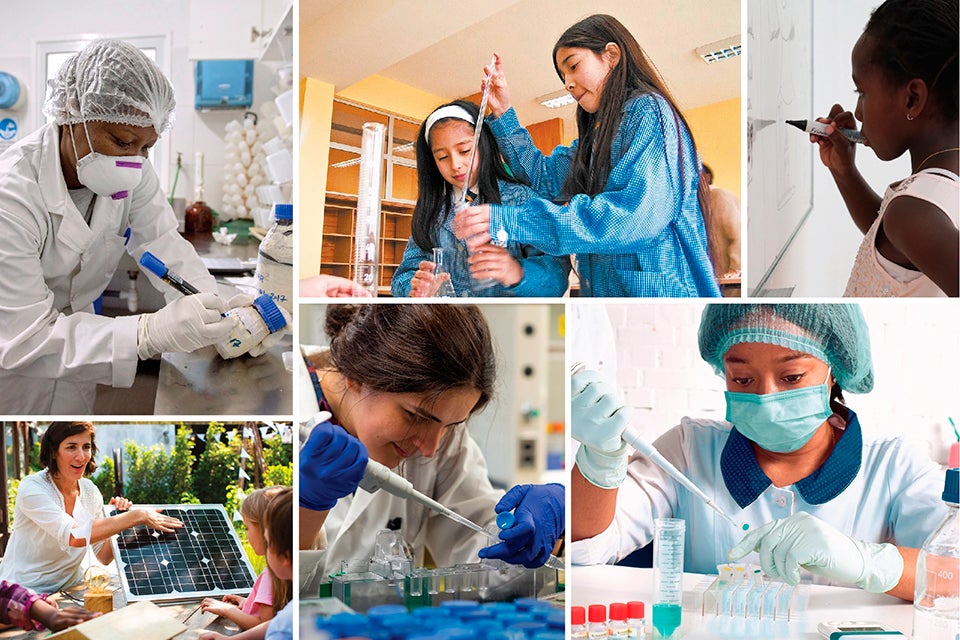Commemorating the International Day of Women and Girls in Science: for more public policies
Date:

UN Women and UNESCO lead the observance of this day each year to promote and encourage actions and initiatives that enable greater participation of women and girls in science and STEM areas. Giving girls and women equal opportunities to develop and thrive in these areas enables them to have better employment possibilities and better salaries, optimizing their economic security and ensuring a diverse and talented workforce in societies.
The jobs of the future are in these areas, where women have been historically underrepresented. Issues such as health in times of pandemics, combating climate change, telecommunications in a globalized world, or robotics and artificial intelligence, rely extensively on these disciplines, which have the potential to provide the skills needed to achieve more prosperous, sustainable and inclusive societies in light of the Sustainable Development Goals and the 2030 Agenda.
The highest earning jobs are careers in STEM but have the lowest percentages of female workers. Varied and complex factors determine the disparities between men and women in their access to STEM as early as school and deepening in universities and in the world of work. Only 3 in 10 students in STEM majors and programs, 2 in 10 artificial intelligence professionals, and 1 in 10 machine learning researchers are women. Only 3% of Nobel Prizes in science have been awarded to women.
According to figures from the UNESCO Institute for Statistics, in July 2019 the average global rate of women researchers was only 29.3%, while in the region, according to available data on the proportion of women researchers in each country, about 27% of the countries had managed to achieve what is characterized as "gender parity," where women represent between 45% and 55% of the total number of researchers.
In the study Women in Science, Technology, Engineering and Mathematics in Latin America and the Caribbean, UN Women analyzes the barriers that lead to gender gaps in STEM in the region, reviews key actors, compiles national policies and plans/programs to reduce gender disparities, gives visibility to successful initiatives implemented to attract more girls and young women to the STEM field, and analyzes pending challenges in the perspective of greater representation of women in the jobs of the future and in the Fourth Industrial Revolution.